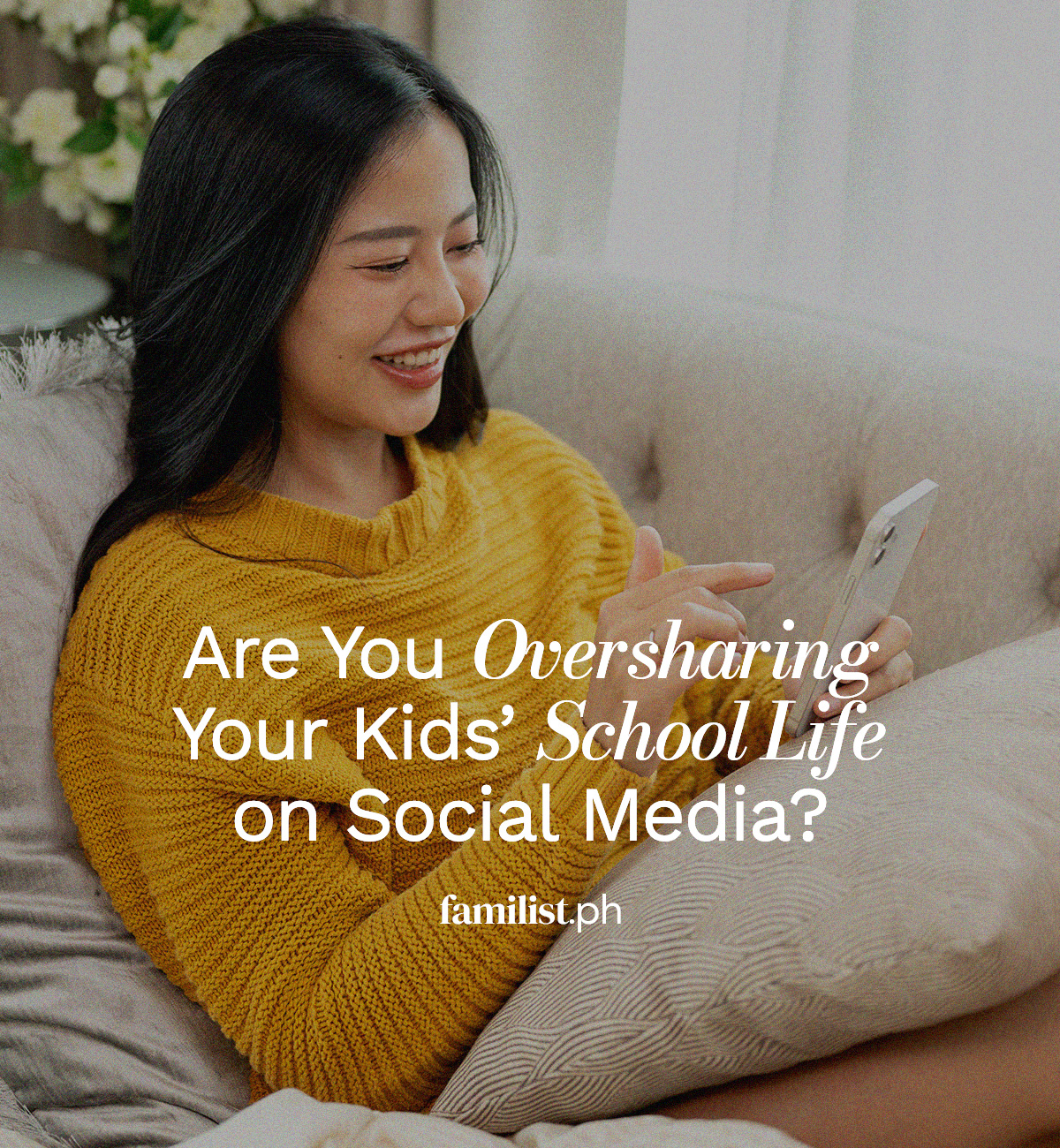The start of a new school year calls for cute new photos to document this new chapter in your child’s life. Since the new school year started, your social media feed has probably been filled with adorable photos of kids wearing their new school uniforms, clutching colorful new bags, and possibly even holding up a sign with their name!
Regularly sharing photos, information, and updates about your children on social media, also called “sharenting”, can be a way for you to connect with people online over shared experiences. It can be fun and validating to share your proudest mom and dad moments using your social media platforms, but you also need to consider the possible long-term impact of sharenting. With the opening of classes this year, let’s talk about some things you may want to avoid sharing online:


If it’s your child’s first time in school, he or she definitely has the cutest ID photo that you can’t get over with. So you snap a photo of the ID and upload!
Putting your children’s full name, address, birth date, school, and year level on social media may make them vulnerable to identity theft, phishing, and other forms of cybercrime. Sophisticated scammers know that kids’ names and birthdays are often used as passwords so sharing all of these online can also make it easier for someone to access your accounts without your knowledge.
Check photos before posting them: Do they contain information that give away your location such as your house number or car plate information? Is the name or logo of your child’s school clearly visible in the photos? It may sound tedious, but removing or covering up these details in your social media posts can help keep your family safe.

Your child just aced a school assessment!
It feels gratifying when you see your kids working hard and getting good grades on their school assignments. But before you post a photo of their A+ essay or perfect score exam, consider that you might be compromising academic integrity. You have no control over who might download or take a screenshot of your photos, and they may easily make their way to people who have yet to answer their own assignment or take the exam.
Schools usually prefer to keep exam and homework questions confidential to avoid leaking for students who will answer them in the future. Being cautious about posting these papers is actually doing your part in helping your child’s school uphold academic honesty.

There’s nothing like the feeling of seeing your child’s report card bear numerical grades beyond your expectations, but sharing it online may not be a wise step.
First of all, documents such as report cards, certificates, and diplomas carry sensitive information such as the Learner Reference Number, “a 12-digit number unique to your child while he or she completes basic education.”
Also, sharing your kids’ grades and awards on social media has an unspoken emotional impact on them. Be very careful: these posts may mean you’re merely showing off the fruits of their hard work or you’re subtly sending them a message that awards and achievements are the main purpose of their education. You may also be contributing to pressure on them to win awards to get your approval.
While you definitely mean well when you celebrate your children’s accomplishments, it’s still important to talk to them about how they perceive and feel about your social media posts. Your kids should know that you love them and you’re proud of them whether or not they have high grades or win competitions.

A video of your child crying at school drop off or a candid photo of your disappointed teen who was not chosen for the varsity team are poignant and emotional memories for you. But these are also your kids’ low points in their life, and they might not want you to share their distress with your social media followers.
To respect their privacy and to protect them from unwanted comments and attention from people while providing them with the support they need is a huge task. The events may not seem like a big deal, but it may be the most distress they have experienced so far in their young lives. They deserve all the love and privacy we can give as they navigate the ups and downs in their own journeys.

It’s hard to think of your little ones growing up and becoming adults with careers in the future but it’s going to happen. One way to prepare for this is to make sure that you are not contributing negatively to their digital footprint. Your kids are growing up in a world that is very different from your childhood, and whatever you post online about them now can resurface later on and have an impact on them once they start applying for college or jobs.
Your kids might appreciate having a digital scrapbook of their childhood memories in the future, but a video of them having a tantrum on the way to school or an anecdote about a potty training accident in the classroom may harm or embarrass them. It’s best to have a conversation with your older children about their consent and boundaries when it comes to what we share on our social media. When in doubt, best to keep that photo or video offline!
It can be tempting to post anything and everything about our kids. After all, we love them so much and they look so cute in their school uniforms and holding up their medals and certificates! But as the world changes, we have to keep up with all the advancements in technology and how that impacts our parenting and the future of our children. Increasing our digital literacy is just another way for us to protect them while we document and preserve all these wonderful memories and milestones of their childhood.



